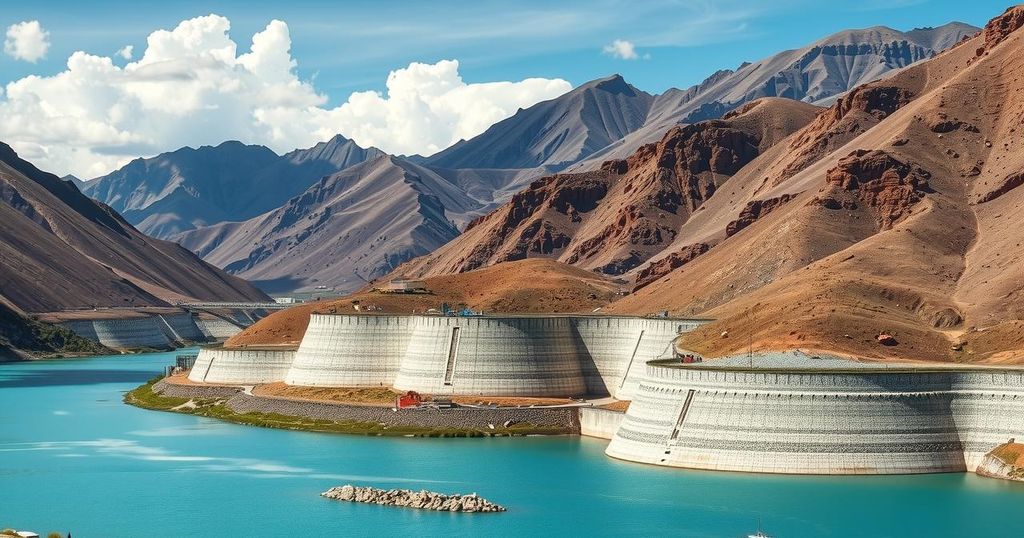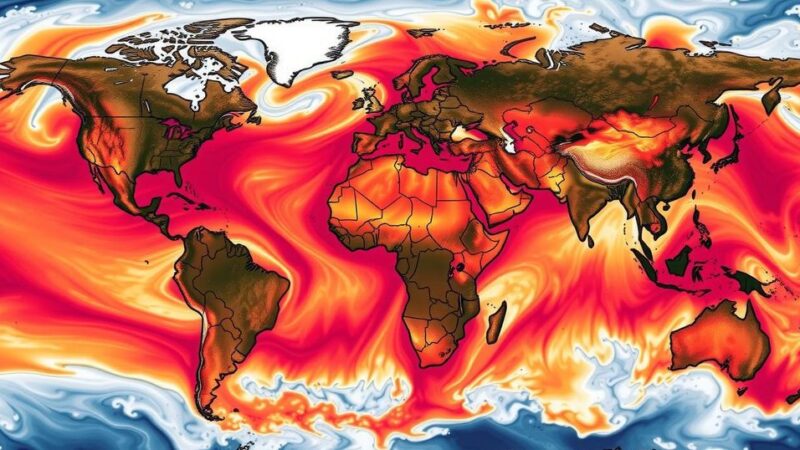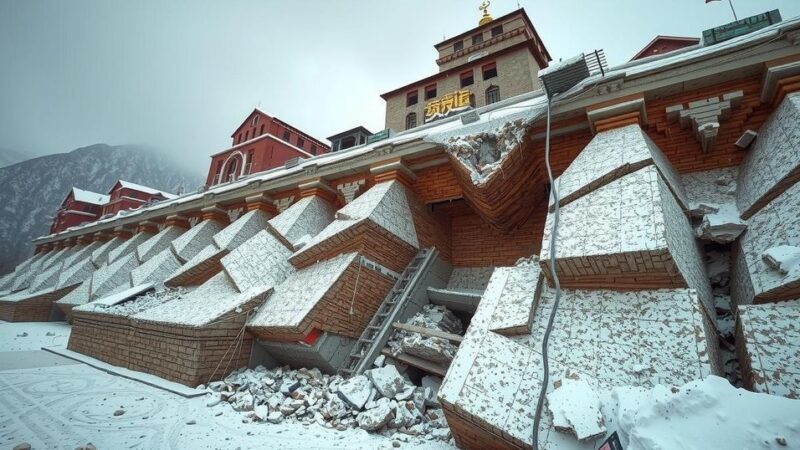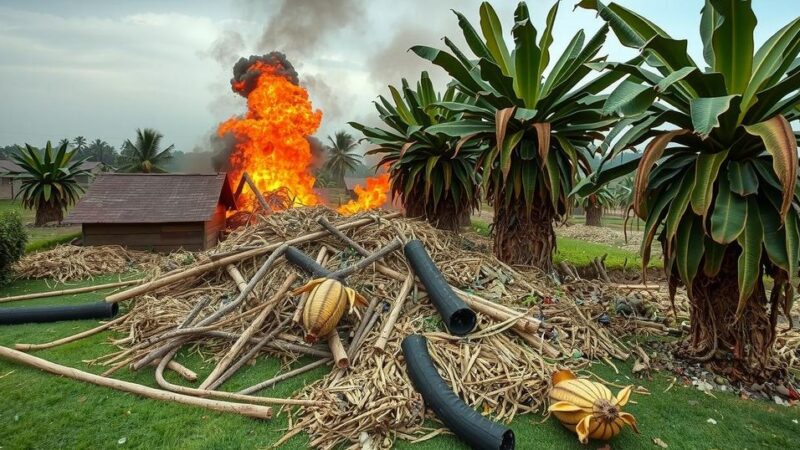China is pursuing large dam projects in earthquake-prone Tibet, despite the associated risks. Following a devastating earthquake that killed 126, rescue operations face severe weather challenges. A recent study indicates a surge in dam proposals, raising environmental and geopolitical concerns.
In recent developments, the Chinese government has intensified its focus on Tibet for hydroelectric projects despite the region’s susceptibility to earthquakes. Following a significant earthquake that resulted in at least 126 fatalities, over 14,000 rescue personnel have been deployed. Notably, harsh weather has complicated rescue operations, with freezing temperatures recorded. Despite the geological risks highlighted by a growing body of research, Beijing is actively pursuing the construction of large dams, raising concerns about potential environmental and geopolitical ramifications.
Tibet, situated atop a geological fault and known for its seismic activity, is becoming a focal point for China’s energy expansion initiatives. The region is home to several critical rivers, which researchers estimate could yield substantial hydropower resources. However, an investigation by the International Campaign for Tibet has revealed a significant increase in the number of proposed dams, which could exacerbate risks of landslides and flooding, thereby endangering local communities and ecosystems. Experts have voiced concerns over the implications of these projects, especially in relation to upstream and downstream geopolitical tensions, notably with India.
In sum, China’s aggressive pursuit of dam construction in the seismically volatile region of Tibet presents serious environmental, humanitarian, and geopolitical challenges. The tragic consequences of the recent earthquake highlight the risks associated with such infrastructural developments. Observers remain skeptical about the sustainability and safety of China’s ambitious energy projects, particularly given their potential to disrupt local environments and exacerbate regional tensions.
Original Source: www.asianews.it







